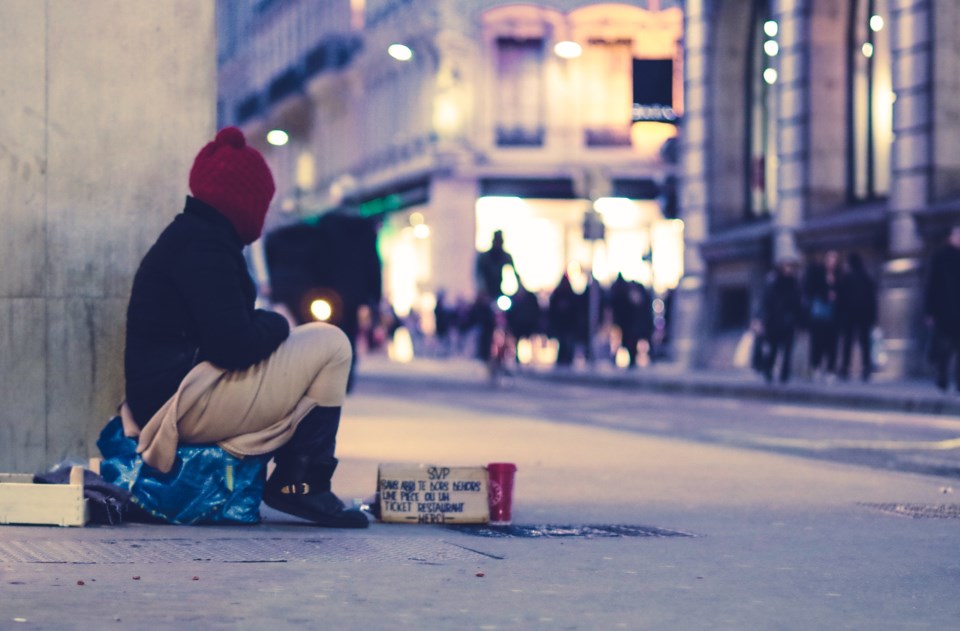 With the cold weather season upon us, the issue of housing the homeless is in the forefront. Mind you, it’s been in the forefront for most of the past year, with “tent cities” appearing in many urban areas around North America. The proliferation of these encampments is bringing three major points to light. The first is the serious lack of housing (file under “DUH”) – and not just about supply, but about the barriers that have put people in that situation: mental illness and drug addiction being just two. Until those can be dealt with, finding a decent place to live is an impossible dream.
With the cold weather season upon us, the issue of housing the homeless is in the forefront. Mind you, it’s been in the forefront for most of the past year, with “tent cities” appearing in many urban areas around North America. The proliferation of these encampments is bringing three major points to light. The first is the serious lack of housing (file under “DUH”) – and not just about supply, but about the barriers that have put people in that situation: mental illness and drug addiction being just two. Until those can be dealt with, finding a decent place to live is an impossible dream.
The second point is that people living near the camps have had the issue brought to their own back yards, and are seeing, up-close-and-personal, “how the other half lives”; and the third is that people in positions of power have no solutions.
Point number 3 is not a knock against people in positions of power. If there were a ready solution, the homelessness issue would have been resolved long before one mayor’s promised target date of 2015. (As H.L. Mencken said, “For every complex problem, there is a solution that is simple, inexpensive, obvious, and wrong.”) Temporary shelters, “safe” drug-use sites and even the tent cities simply give the impression of Doing Something while pushing the problem to one side, like giving your date’s kid brother a lollipop to leave the two of you alone.
Rather than cudgel our brains looking for a solution, one might consider Jesus Christ’s words.
“The poor, you will have always”.
Out of context, that sounds like, “we’re always going to have poor folks, so don’t stress about solving it.” In context, it seems that current efforts put the cart before the horse – or forget about the horse altogether.
Jesus was responding to Judas Iscariot, who criticized a woman for anointing Jesus with highly expensive ointment, which (Judas says) could have been sold and the money given to the poor. Jesus responds that He will only be there for a short time and should be worshipped while He is there; then, we can tend to the poor.
As a Christian, I believe that worshipping Him brings a mindset of love for our neighbours, and that’s the fuel we need to minister properly to the poor. When we built The Lord’s Rain to provide showers on the Downtown East Side, we saw the problem, but rather than pursue our own course of action, we turned to the Lord first for direction, wisdom and supply. The result was greater than anything we could have imagined.
The hardness of the hearts of people living near the camps is not without good reason, but softening those hearts with neighbourly love brings compassion, and turns the confrontational “us and them” situation into an “us and us” scene. We see people – not numbers in a homeless count; people who need healing – not losers who “brought it on themselves”; we see children of God, like you and me.
 Drew Snider is a writer and former broadcaster who pastored for ten years on Vancouver's Downtown East Side. He's an occasional guest speaker at churches and writes a blog, "Two Minutes for Cross-Checking!"
Drew Snider is a writer and former broadcaster who pastored for ten years on Vancouver's Downtown East Side. He's an occasional guest speaker at churches and writes a blog, "Two Minutes for Cross-Checking!"
You can read more articles on our interfaith blog, Spiritually Speaking, HERE


